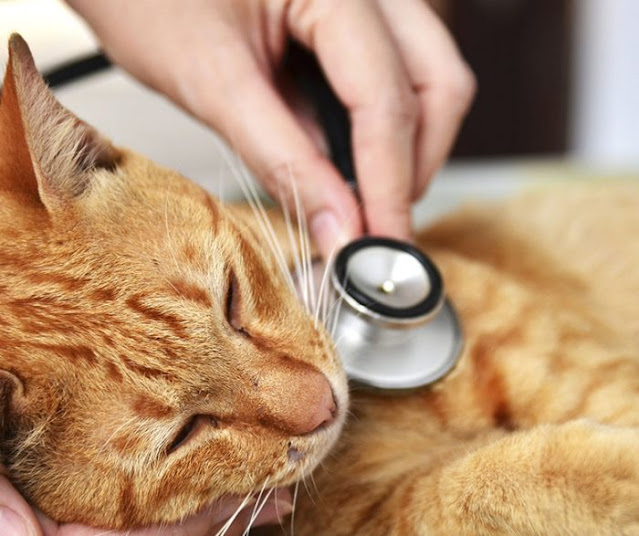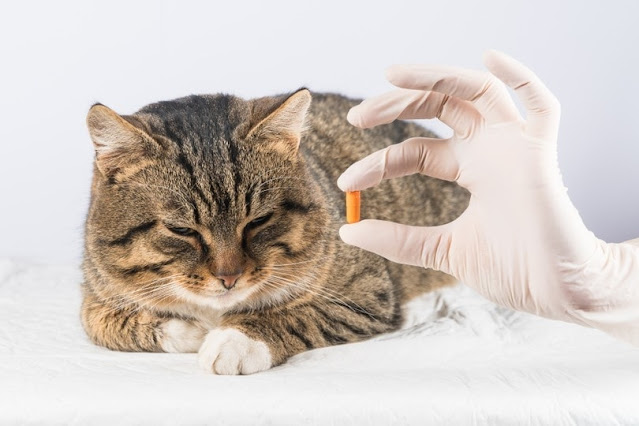what are the symptoms if a cat is constipated?
Natural remedies for constipated cats
Constipation is not only a common health issue in humans but also in our furry friends – cats. If you notice that your cat is having difficulty passing stool or is not defecating as frequently as usual, it may be experiencing constipation. In this article, we will discuss the symptoms of cat constipation, how to treat it, and natural remedies that can help relieve your cat’s discomfort.
Treating cat constipation
When it comes to treating cat constipation, it’s essential to remember that severe or prolonged cases should always be examined and addressed by a veterinarian. They can provide the necessary medical interventions and recommend the most appropriate course of treatment. However, for mild cases or as a preventive measure, there are a few steps you can take at home to help your furry friend.
Cat constipation symptoms
Cats are generally very good at hiding signs of illness, so it’s crucial for pet owners to be attentive and observant. Here are some common symptoms that may indicate your cat is constipated:
- Loss of appetite
- Lethargy or reduced activity level
- Straining in the litter box
- Small, dry, or hard stools
- Prolonged squatting or frequent unsuccessful attempts in the litter box
- Pain or discomfort while defecating
- Visible distress, crying, or vocalization
- Abdominal bloating or discomfort upon touch
- Excessive grooming around the rear end.
What Are the Symptoms if a Cat Is Constipated?
When a cat is constipated, its body language and behavior can provide valuable clues about its discomfort. While every cat is unique, and symptoms may vary slightly, there are some common signs to look out for:
- Reduced Activity and Lethargy: Constipated cats may become less active, preferring to rest or sleep rather than engage in their usual activities.
- Loss of Appetite: Cats experiencing constipation may lose their appetite or show a decreased interest in food. This can lead to weight loss and potential nutritional deficiencies.
- Excessive Licking or Grooming: Cats often try to alleviate discomfort through excessive licking or grooming, particularly around the anal area.
- Visible Pain or Discomfort: Your cat may display signs of discomfort, such as vocalization, restlessness, or sensitivity when touched near the abdomen.
- Changes in Litter Box Habits: If your cat is constipated, you may notice a decrease in the frequency or size of its stool. It may also spend more time in the litter box, attempting to defecate without producing any stool.
Cat Is Constipated: What Now?
If you suspect that your cat is constipated, it’s important not to ignore the issue. While occasional mild constipation can often be resolved with natural remedies, persistent or severe cases require veterinary intervention to ensure your cat’s comfort and well-being. Here are the steps to take if your cat is constipated:
- Consult a Veterinarian: Schedule an appointment with your veterinarian to discuss your concerns. They will conduct a thorough examination, review your cat’s medical history, and determine the underlying cause of constipation.
- Implement Dietary Changes: Your veterinarian may recommend adjusting your cat’s diet to increase fiber intake or switch to a specialized cat food formula designed to promote regular bowel movements.
- Encourage Hydration: Dehydration can contribute to constipation, so ensure your cat has access to fresh water at all times. Your veterinarian might suggest adding water to your cat’s diet or providing moist food options.
- Enrich the Environment: Create an environment that encourages physical activity and mental stimulation. Providing scratching posts, interactive toys, and vertical spaces helps keep your cat active, aiding in regular bowel movements.
- Administer Medications or Laxatives: In more severe cases, your veterinarian may prescribe medications or laxatives to help alleviate constipation. It’s crucial to follow their instructions carefully, as incorrect usage can have adverse effects on your cat’s health.
Cat bowel movement issues
Several factors can contribute to cat bowel movement issues, including inadequate hydration, diet, lack of exercise, underlying health conditions, and certain medications. If your cat is suffering from constipation, it may be helpful to examine these areas and make appropriate adjustments to their routine or diet. Here are some tips to promote healthy bowel movements in cats:
- Hydration: Ensure your cat has access to fresh water at all times. Consider adding additional water sources, such as pet water fountains, to encourage increased water intake.
- Diet: Provide a balanced diet rich in fiber. Consult your veterinarian for specific dietary recommendations tailored to your cat’s needs.
- Exercise: Engage your cat in regular play sessions and provide opportunities for physical activity.
- Litter box management: Keep the litter box clean, easily accessible, and in a quiet and stress-free area. Some cats may avoid using the litter box if they feel anxious or uncomfortable.
- Stress reduction: Minimize environmental stressors and provide a calm and secure living environment for your cat.
Cat Bowel Movement Problems
As pet owners, it’s our responsibility to ensure that our feline friends are in good health and experiencing regular bowel movements. However, there may be instances when our beloved cats experience constipation, which can cause discomfort and lead to more serious health issues if not addressed promptly. In this article, we will explore the signs and symptoms of cat constipation, helping you identify if your furry companion is in need of some relief.
Signs of Cat Constipation
Constipation occurs when a cat has difficulty passing stools or does not pass them as frequently as they should. While occasional mild constipation may not be cause for alarm, persistent or severe constipation can indicate underlying health issues and require veterinary attention. Knowing the signs of cat constipation can help you intervene early and prevent further complications. Here are some common indicators:
- Decreased or No Stool: A clear sign of constipation is when your cat’s litter box remains empty or you notice a significant reduction in stool size or frequency.
- Straining in the Litter Box: If your cat is spending more time in the litter box, consistently attempting to defecate but with little success, it may be struggling with constipation.
- Hard and Dry Stools: Constipated cats often produce hard, dry, and pebble-like stools. These can be difficult to pass and may cause discomfort.
- Weight Loss and Lack of Appetite: Chronic constipation can lead to a decreased appetite, resulting in weight loss. If you notice these symptoms along with other signs of constipation, it’s essential to seek veterinary care.
- Abdominal Discomfort: Cats experiencing constipation may display signs of abdominal pain, such as meowing, restlessness, or sensitivity when being touched in the belly area.
- Increased Grooming: While grooming is a natural behavior for cats, excessive grooming, especially around the anal area, can be a symptom of constipation.
Feline Constipation Symptoms
Understanding the symptoms of feline constipation can help you differentiate between occasional gastrointestinal issues and a more serious underlying problem. Although the signs mentioned above may indicate constipation, it’s crucial to consult your veterinarian for an accurate diagnosis. Here are some additional symptoms associated with cat constipation:
- Visible Struggle: If you observe your cat exhibiting visible discomfort while attempting to defecate, it’s likely experiencing constipation. Signs of struggle may include hunching, squatting for extended periods, or repeatedly entering and exiting the litter box without producing stool.
- Bloody Stools: In severe cases, constipation can lead to the passage of bloody stools. If you notice blood in your cat’s stool, it’s imperative to seek immediate veterinary care, as this could indicate a more severe condition.
- Dehydration: Cats suffering from constipation may also become dehydrated. You can assess dehydration by gently pinching the skin on the back of your cat’s neck. If the skin takes longer to return to its normal position, it may be an indication of dehydration.
- Vocalization: Cats in distress may vocalize their discomfort, often through meowing, crying, or groaning. If your cat is displaying unusual vocalization and struggles with constipation, professional assistance is recommended.
- Lethargy and Depression: Chronic constipation can leave a cat feeling lethargic and depressed. If you notice a significant change in your cat’s behavior, such as excessive sleepiness or lack of interest in play, it may be a result of constipation.
Preventing cat constipation
Prevention is often the best approach when it comes to cat constipation. By implementing a few simple strategies, you can help reduce the risk of constipation in your feline friend. Here are some preventive measures to consider:
- Regular veterinary check-ups: Schedule routine check-ups with your veterinarian to ensure your cat’s overall health and address any potential concerns before they escalate.
- Proper hydration: Encourage your cat to drink water by providing fresh water sources and possibly using a pet water fountain.
- Dietary adjustments: Consult with your veterinarian to determine an appropriate diet for your cat’s specific needs. A diet rich in fiber can help promote regular bowel movements.
- Exercise and play: Engage your cat in daily play sessions and encourage physical activity to support overall digestive health.
- Regular grooming: Help your cat maintain a healthy coat by regularly brushing them. This can minimize hair ingestion during self-grooming, which can contribute to constipation.
- Stress management: Minimize stress in your cat’s environment, providing them a safe and secure space, free from anxiety-inducing stimuli.
In conclusion, cat constipation is a common issue that can cause discomfort and health problems for our feline companions. By being attentive to the symptoms, providing prompt treatment and making proactive changes to your cat’s lifestyle, you can help alleviate their discomfort and promote regular bowel movements. Remember, if the constipation persists or becomes severe, it is essential to consult with your veterinarian for appropriate medical intervention. A healthy digestive system is crucial for your cat’s overall well-being and happiness.
Remember, the information provided in this article is for informational purposes only and should not replace professional veterinary advice. If you suspect that your cat is constipated or experiencing any other health issues, consult your veterinarian for an accurate diagnosis and appropriate treatment options.
By monitoring your cat’s behavior, providing a balanced diet, promoting hydration, and seeking timely veterinary care, you can help prevent and manage constipation, ensuring your feline companion leads a happy and healthy life.













